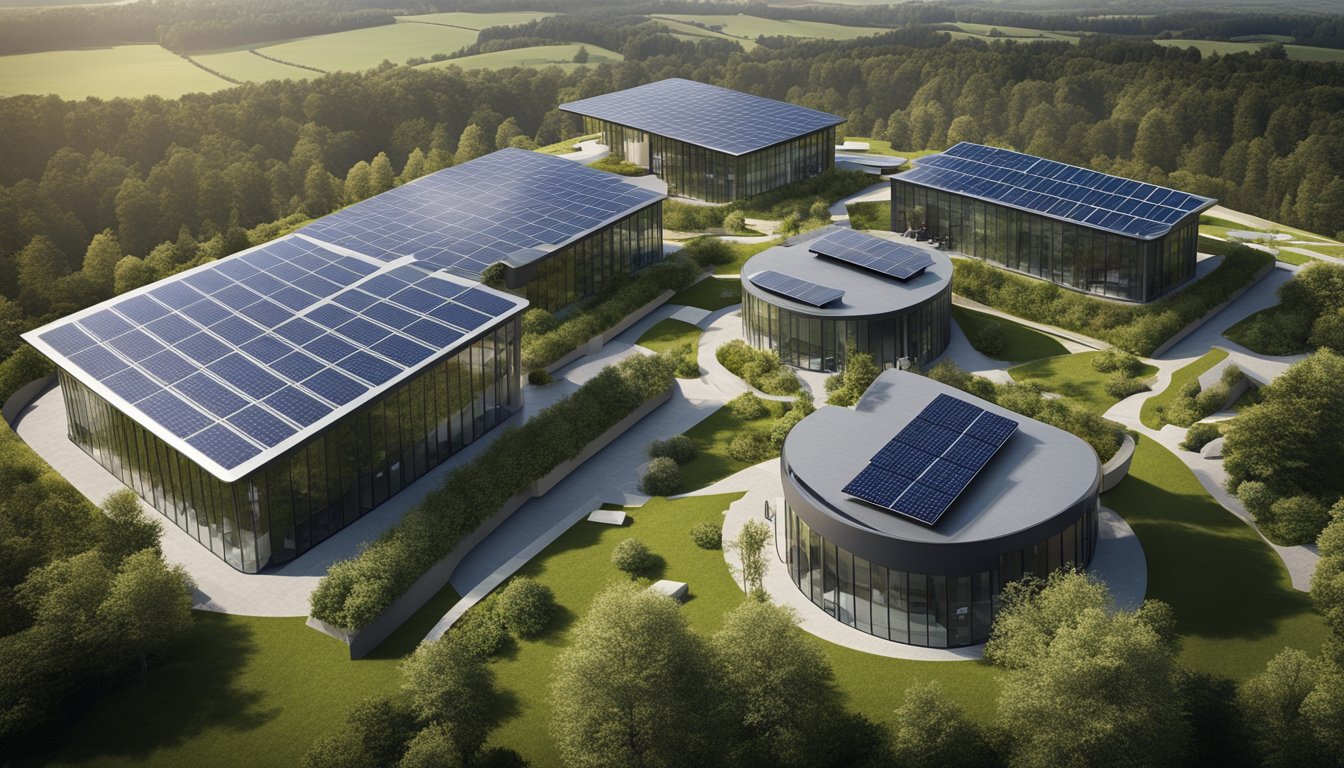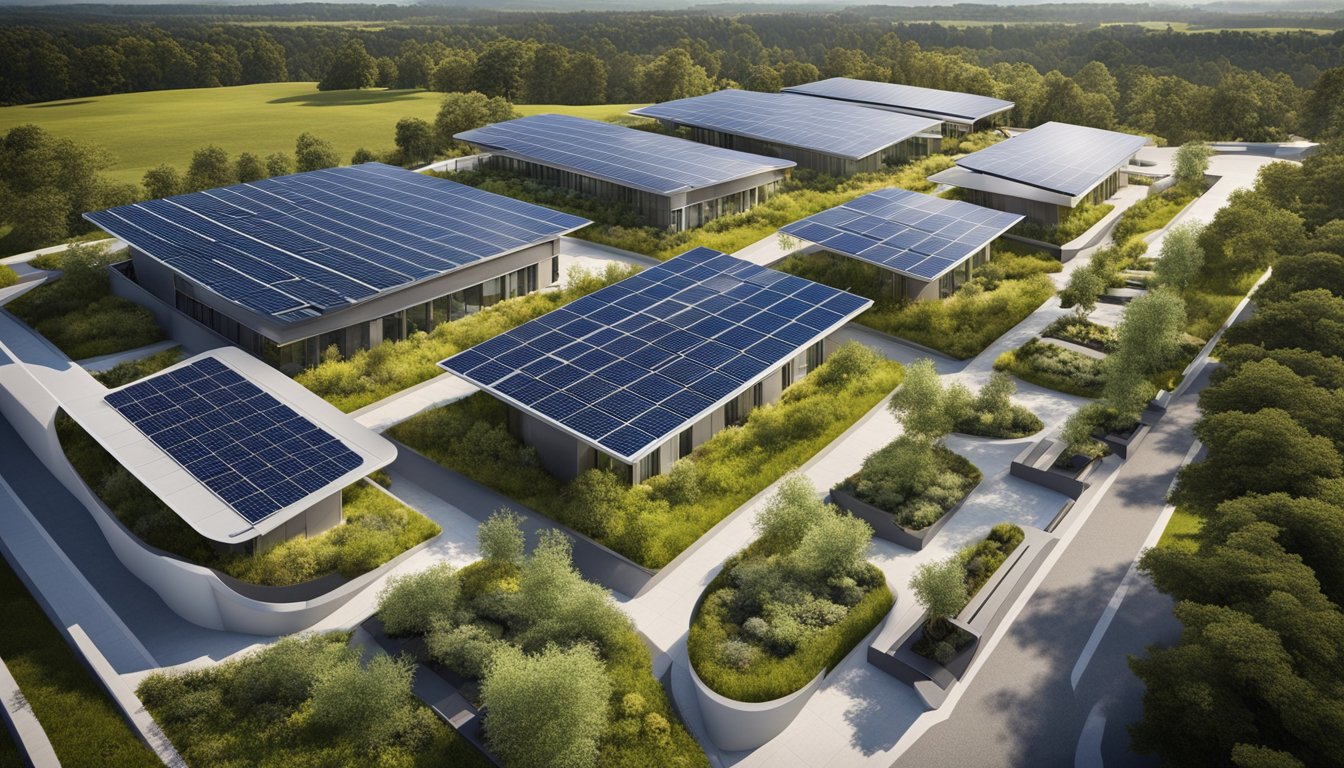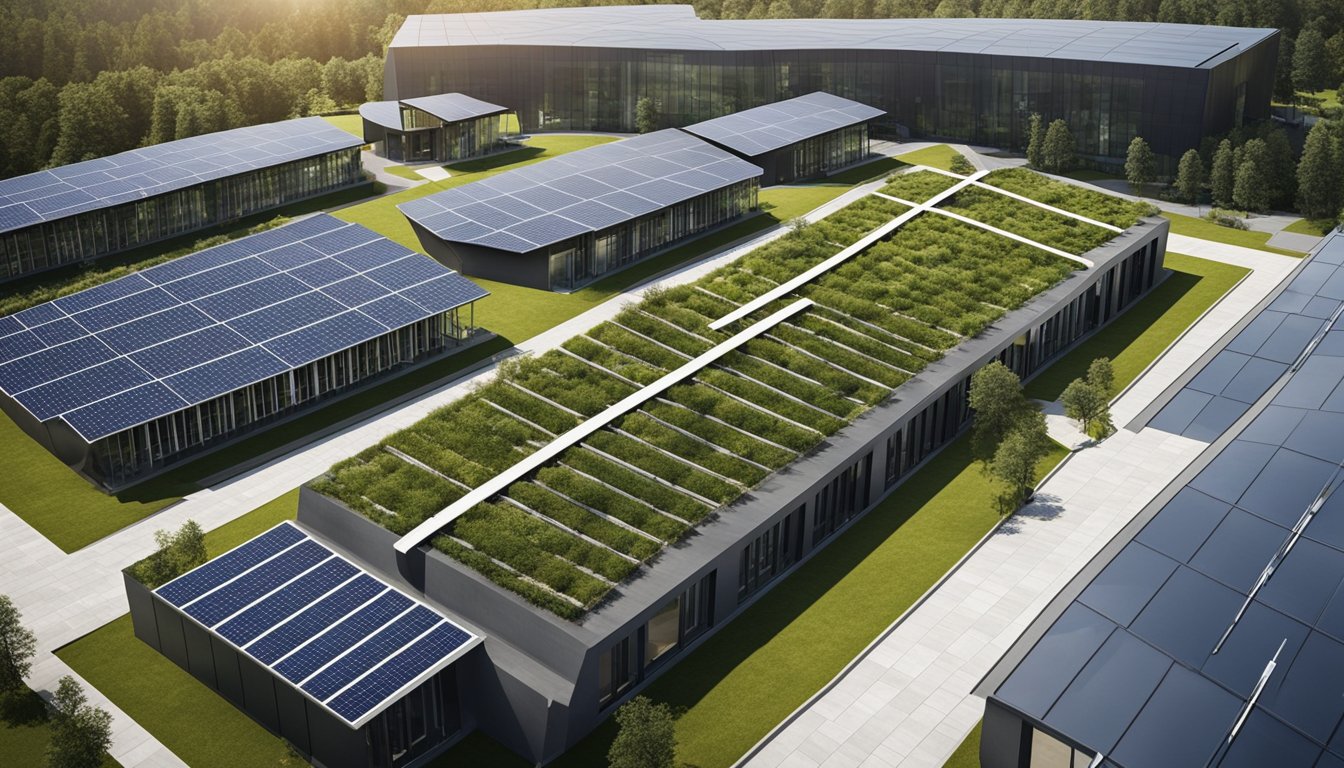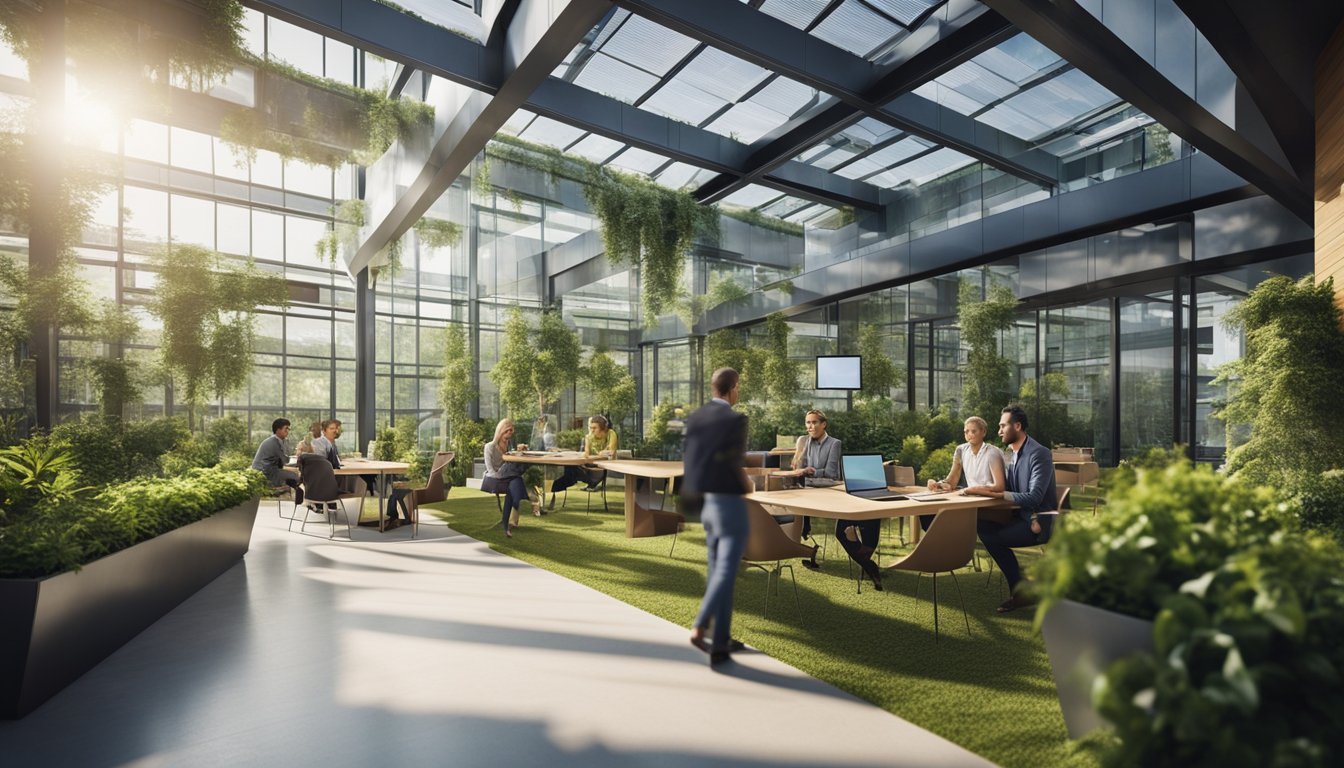Late updated: 09 Oct 2024 16:10
Written by: Eleanor Hartman
Emerging Green Building Technologies in the UK: Innovations in Sustainable Construction
The construction sector in the UK is witnessing a transformative shift towards sustainable practices. Emerging green building technologies are at the forefront of this change, offering innovative solutions to reduce carbon footprints and enhance energy efficiency. These advancements are crucial as we face pressing climate change challenges and seek paths for recovery post-Covid-19.

Our exploration into the UK's green building landscape reveals a range of technologies that not only promise sustainability but also economic growth. From smart buildings that optimise energy use to cutting-edge materials like low-carbon concrete, the industry is harnessing technology to future-proof our built environment. With governmental support and clear strategies, the adoption of these technologies is accelerating.
Sustainability is not just an option; it's a necessity. As policies evolve and the construction industry adapts, we stand on the brink of a revolution that blends engineering prowess with environmental stewardship. The question is not why, but how quickly we can integrate these pioneering solutions into our everyday lives.
Key Takeaways
- Emerging technologies are key in reducing carbon footprints in the UK.
- The construction sector is evolving with smart and energy-efficient solutions.
- Supportive policies are driving the adoption of sustainable practices.
Sustainable Building and Design Innovations

We are witnessing a transformative period in sustainable building and design, focusing on energy efficiency, innovative materials, and the integration of smart technologies. These advancements are pivotal in reducing our carbon footprint and achieving the Sustainable Development Goals.
Advancements in Energy Efficiency and Renewable Sources
Energy efficiency is at the core of sustainable building design, with a focus on minimising energy consumption and reliance on fossil fuels. In the UK, developments in renewable energy sources like solar power and heat pumps are becoming integral to building projects. These technologies not only reduce our energy demand but also help in meeting net-zero targets.
Solar power installations on rooftops are increasing, transforming our structures into energy generators. In addition, heat pumps are proving crucial for efficient heating, significantly cutting greenhouse gas emissions. The design of net-zero energy buildings prioritises these technologies to maintain a balance between energy consumption and production, contributing to a more sustainable future.
Materials and Resources for Sustainable Construction
In sustainable construction, the choice of materials is critical. The industry is moving towards the use of recycled materials, low carbon options, and bio-based materials that support a circular economy. Such materials not only reduce waste but also minimise the carbon footprint of construction activities.
The use of innovative materials like green charcoal loofah bricks demonstrates how organic and recycled substances can be combined for sustainable building solutions. Incorporating insulation technology helps in managing building energy efficiently, ensuring minimal energy loss. As part of green building practices, these materials make a significant impact on sustainable development efforts.
Integrating Smart Technologies and Automation
Smart technology integration is revolutionising building design. With the rise of internet of things (IoT) devices, we're seeing enhanced monitoring and management of building systems. Building automation systems use big data and digital technology to optimise energy use and enhance comfort.
Artificial intelligence (AI) and machine learning enable smart buildings to predict maintenance needs and adjust energy use dynamically. This not only reduces operational costs but also contributes to the decrease of greenhouse gas emissions. By embracing these technologies, we create smarter, more sustainable environments that adapt to our needs while protecting the planet.
Each of these facets, from energy innovations to smart technologies, reflects our commitment to sustainable building and design. Together, they form the framework for achieving a future where the built environment coexists harmoniously with the natural world.
Policies, Training, and Industry Evolution

The integration of green technologies in the UK’s construction sector is influenced by various policies, industry-led initiatives, and educational efforts. These components work together to address sustainability challenges and enhance resilience to climate risks through targeted training and industry evolution that prioritises sustainable practices and environmental protection.
Governmental and Industry-Led Initiatives
Governments and industry entities in the UK play a pivotal role in shaping the trajectory of sustainable building practices. Governmental policies, like those in line with the Paris Agreement, focus on reducing embodied carbon and improving thermal efficiency. Carbon pricing and sustainability initiatives drive companies to adopt eco-friendly construction methods.
Industry leaders and organisations such as the UK Green Building Council (UKGBC) advocate for robust standards that improve air quality and biodiversity. Government contracts often include sustainability criteria that encourage innovative retrofits and facilities management practices. Collaborations between public and private sectors ensure that policy developments align with environmental sustainability goals.
Education and Skill Development in Green Technologies
The need for specialised training in green technologies has never been greater. Our approach to education involves comprehensive programmes that emphasise sustainable innovation. Skill development focuses on areas like retrofit techniques, reducing embodied carbon, and improving thermal efficiency. Educational institutions and industry bodies work together to equip the workforce with the necessary competencies.
Courses often include modules on risk assessment and adaptation strategies to address climate risks effectively. By integrating environmental protection principles into curricula, we prepare professionals for the challenges of sustainable construction. This emphasis on training ensures that emerging green technologies are implemented effectively across various sectors.
Adaptation and Resilience to Climate Risks
Addressing climate risks requires both proactive and adaptive strategies. Our industry faces ecological crises that necessitate a focus on resilience and adaptation measures. We incorporate resilience strategies into building designs to withstand environmental stresses and enhance climate adaptation capabilities.
Investments in technologies designed for resilience improve not only the sustainability of the built environment but also its capacity to endure climatic extremities. These measures are crucial as they directly affect facility management and the long-term viability of projects. By fostering collaborative efforts and embracing innovative solutions, we enhance our collective ability to combat climate challenges comprehensively.
Frequently Asked Questions

Sustainable building technologies in the UK are evolving rapidly. We aim to address key questions about innovations, integration of green tech, developments in materials, and regulatory support.
What are the latest innovations in sustainable building design in the UK?
Recent innovations include the incorporation of renewable energy sources, green roofs, and advanced smart home technologies to improve energy efficiency. Designers focus on holistic approaches that merge these technologies, resulting in buildings that significantly reduce environmental impact.
How is green technology being integrated into UK construction practices?
Green technology is deeply embedded in modern UK construction techniques, with projects often utilising energy-efficient systems, sustainable materials, and waste-reducing strategies. Digital tools for planning and monitoring energy usage play a crucial role in these integrations.
What are the newest developments in energy-efficient building materials in the UK?
Energy-efficient building materials have seen considerable advancement, particularly with LED lighting’s rise due to its energy efficiency and long lifespan. Other developments include thermally insulating materials and innovative composites that enhance structural efficiency and environmental friendliness.
Which sustainable building certifications are most prominent in the UK?
Prominent certifications include BREEAM and Passivhaus, both recognising buildings that meet stringent sustainability criteria. These certifications encourage adherence to best practices in environmental performance and resource efficiency.
What case studies demonstrate successful green building strategies in the UK?
Several case studies showcase the UK's leadership in green building, featuring projects like the Eden Project and the Crystal Building. These examples highlight innovative designs and successful implementations of sustainability principles.
How are UK building regulations evolving to support the use of green technologies?
UK building regulations increasingly favour green technologies, incorporating specifications for energy efficiency and the use of renewable resources. Recent updates include stricter energy performance standards and incentives for adopting eco-friendly practices in new constructions.